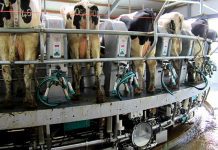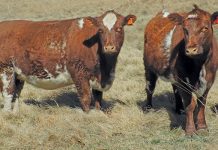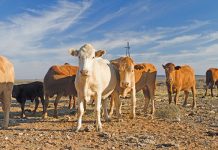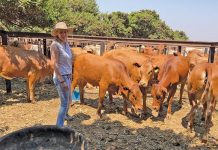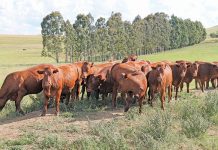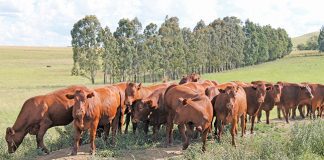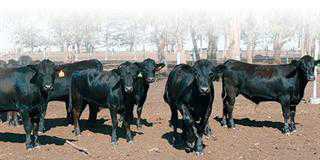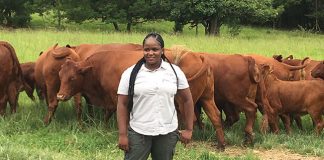A cow is more or less a mobile fermentation vat in which microbes in the abomasum create nutrients from substrates fed into the rumen. The emphasis should be on keeping the basic feeds constant to avoid disruption of the fermentation process. Many years ago, I visited a farmer in the Underberg area. We went down to inspect the cows and found them actively seeking out the dry, coarse roughage beyond the green ryegrass pasture.
This shows cows have a sense of their dietary needs and will take in a ‘scratch factor’ of roughage if they can. Roughage stimulates the rumen papillae, initiates rumen contractions and mixes newly ingested feed with fermenting feed. (See Figure 1.) You can feel rumen movement by placing your fist firmly into the triangle below the loin area on the cow’s left side. If the rumen contractions can’t be felt, the animal is ill.
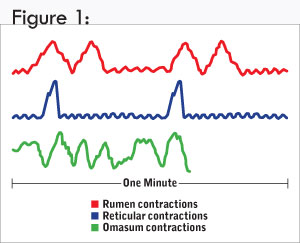
A representation of digestive tract contractions.
Symptoms
If you suspect there’s a problem with rumen function, check for the following symptoms:
- Fluctuating dung scores. (I’ve seen pure concentrates in dung pats.)
- Low dry matter intakes.
- Low butterfat yields.
- Delayed milk peaks.
- Sore feet or laminitis.
- Less than 50% of the herd chewing the cud when not grazing.
Feeding
Remember that a cow has a temperature peak in the early morning, so is more likely to have higher intakes later. Silage and hay can be fed out on pasture verges or in the pasture just short of the electric fence. Managing silage economically means not putting out more silage than the cows will eat.
Supplying extra salt can increase feed intakes so rock salt blocks in the pasture can be useful. Kikuyu is known to have low sodium content, while that of ryegrass and white clover is higher.
Malcolm Stewart-Burger founded the Society of Master Dairymen and designed the Maxi Milk System. He’s currently a part-time consultant to Nutex Feeds and De Heus. Contact him at [email protected]. Please state ‘Milking for profit’ in the subject line of your email.

